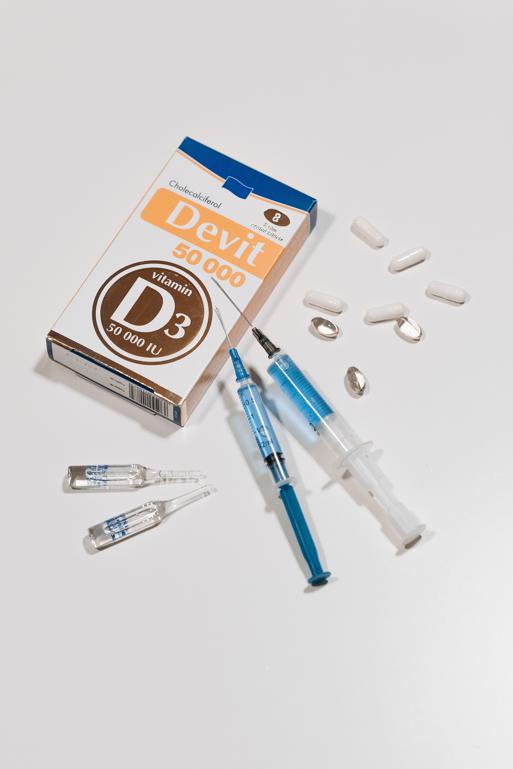9 Vitamin D Benefits You Should Know
Everyone knows that eating a balanced diet and getting adequate exercise are important for overall health and wellness. But did you know that vitamin D also plays an important role?
In this blog post, we’ll take a look at 9 benefits of vitamin D that you should know. From strengthening bones to improving heart health, the benefits of vitamin D are numerous.
So read on to find out more about why it’s important to make sure you’re getting enough vitamin D!
Vitamin d

Vitamin D is an essential nutrient that plays an important role in helping us maintain our overall health and well-being. From regulating our body’s calcium and phosphorus levels to supporting our immune system, there are numerous vitamin D benefits that should not be overlooked. Here are nine essential benefits you should know about vitamin D:
Vitamin D helps to regulate calcium and phosphorus levels in our body, which is necessary for maintaining strong bones and teeth.
It may help to reduce the risk of certain types of cancer, such as colorectal and prostate cancer. Vitamin D can aid in improving muscle strength, balance, and coordination, which can help reduce the risk of falls and fractures.
It may help to reduce the risk of developing type 2 diabetes.
Vitamin D has been associated with improving mood and reducing symptoms of depression. It may help to reduce the risk of developing multiple sclerosis. Vitamin D can help to strengthen the immune system, which can help reduce the risk of respiratory infections. It may help to reduce the risk of developing cardiovascular disease. Vitamin D may help to reduce the risk of developing age-related macular degeneration. By understanding the numerous benefits of vitamin D, we can make sure to get adequate amounts of this important nutrient in our diets.
Benefits of vitamin d

Vitamin D is an essential nutrient that helps our bodies absorb calcium and phosphorus, and is important for maintaining strong bones and teeth, and overall physical health. While it can be obtained from dietary sources such as dairy, fatty fish, and fortified foods, our bodies also produce vitamin D when exposed to sunlight. With that in mind, here are 9 vitamin D benefits you should know about:
With that in mind, here are 9 vitamin D benefits you should know about: Reduces risk of osteoporosis: Vitamin D helps our bodies absorb calcium, which helps build and maintain strong bones. This helps reduce the risk of osteoporosis, a condition characterized by weak, brittle bones.
Supports muscle strength: Vitamin D is important for muscle strength, as it helps our bodies use calcium and phosphorus to build muscle and reduce inflammation.
Boosts mood: Low levels of vitamin D have been linked to depression and other mood disorders. Research suggests that supplementing with vitamin D may help improve mood.
Improves immunity: Vitamin D has been shown to help our bodies fight off infections, reduce inflammation, and support healthy immune function. Reduces risk of certain cancers: Studies have found that higher levels of vitamin D are associated with a lower risk of certain cancers, including colorectal and breast cancer. Helps regulate blood pressure: Vitamin D helps regulate blood pressure and improve circulation, which can reduce the risk of stroke and heart disease. Prevents diabetes: Vitamin D has been linked to lower levels of insulin resistance, which can help prevent type 2 diabetes. Supports cognitive function: Research suggests that vitamin D may play a role in cognitive function, and supplementing with it may help improve memory and learning. Supports pregnancy: Vitamin D is important for pregnant women, as it helps the body absorb calcium and phosphorus, and is important for fetal development.
Sources of vitamin d

Vitamin D is an essential nutrient that plays a key role in many bodily functions. It is important for a healthy immune system, strong bones, and healthy skin.
While sunshine is the main source of vitamin D, there are other sources that can help you get the recommended daily intake. Knowing the nine vitamin D benefits and the sources of vitamin D can help you maintain optimal health. The nine vitamin D benefits include strengthening bones, reducing inflammation, promoting healthy teeth, maintaining a healthy weight, improving heart health, boosting the immune system, helping with depression, improving cognitive function, and reducing the risk of various cancers.
Sources of vitamin D include sunlight, fatty fish, fortified foods, mushrooms, and supplements. Sunlight is the main source of vitamin D and even a few minutes of sun exposure can help increase levels.
Fatty fish such as salmon, mackerel, and sardines are good sources of vitamin D and can be incorporated into a healthy diet. Fortified foods such as milk, cereal, and orange juice are also good sources of vitamin D. Additionally, mushrooms that have been exposed to ultraviolet light are a good source of vitamin D.
Finally, supplements are an easy way to ensure that you get the recommended daily intake of vitamin D. By understanding the nine vitamin D benefits and sources of vitamin D, you can ensure that you get the recommended daily intake and maintain optimal health.
Recommended intake of vitamin d

Vitamin D is an essential nutrient that has many benefits for our overall health and wellbeing. As it is not naturally found in many foods, many of us do not get enough.
Knowing the recommended intake of vitamin D is important to ensure we are getting enough and reaping its many benefits. Here are nine vitamin D benefits you should know to ensure you are getting enough of this essential nutrient: Vitamin D helps to maintain strong bones by aiding in the absorption of calcium.
It helps to support a healthy immune system.
Vitamin D has been linked to reducing the risk of certain cancers.
It helps to regulate levels of other essential minerals in the body, such as magnesium and zinc. It helps to reduce inflammation, which can benefit many other health conditions. Vitamin D aids in the production of serotonin, the chemical responsible for mood regulation. It has been linked to reducing the risk of heart disease. It helps to regulate blood sugar levels. It can help to reduce the risk of developing dementia and Alzheimer’s disease. So, how much vitamin D do you need? The recommended daily allowance for adults is 600 IU (international units). Be sure to include foods that are rich in vitamin D such as eggs, salmon, and fortified milk in your diet. You can also increase your vitamin D intake by spending some time in the sun. With a few simple steps, you can make sure you’re getting the vitamin D that your body needs and reap the many benefits it has to offer.
Considerations for vitamin d supplementation

Vitamin D is an essential nutrient that plays a major role in overall health and wellness. Many people are not getting enough of this important vitamin, and supplementation may be beneficial. Here are 9 vitamin D benefits you should know about if you’re considering taking a supplement.
Vitamin D helps maintain healthy bones and teeth, supports a strong immune system, helps regulate blood pressure, and plays a role in the prevention of certain cancers. It can also aid in reducing inflammation, aiding in the absorption of calcium, and helping to reduce the risk of depression.
Additionally, Vitamin D is known to aid in the prevention of type 2 diabetes, improve muscle strength, and improve sleep. With so many potential benefits, it’s no wonder many people are considering supplementing with Vitamin D.
Conclusion
In conclusion, vitamin D is a vital nutrient that plays an important role in numerous bodily functions. By understanding the nine benefits of vitamin D, you can take steps to ensure you’re getting enough of this vital nutrient in your daily diet.







